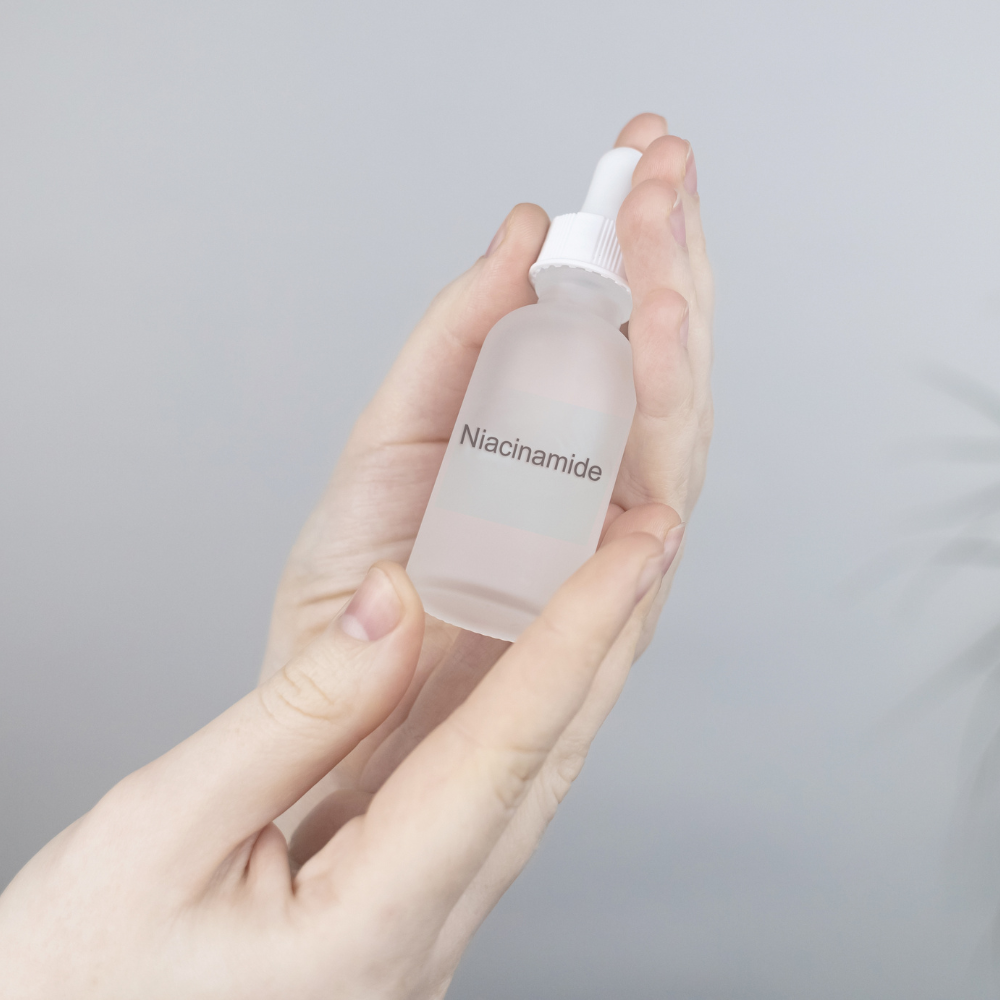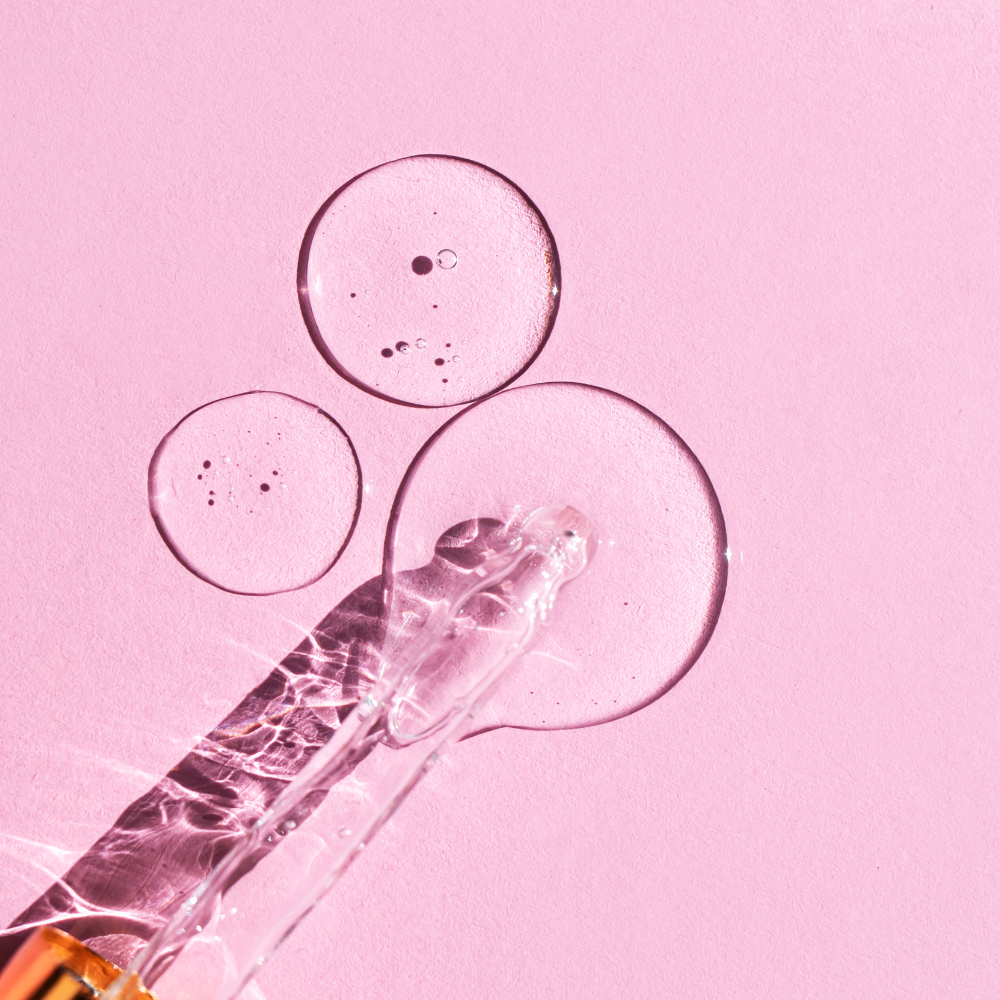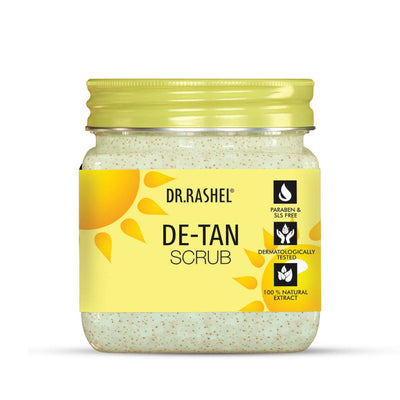
Table of Contents
- What Is Niacinamide?
- Niacinamide Benefits for Skin
- How to Use Niacinamide in Your Skincare Routine?
- Who Should Use Niacinamide?
- Finally
- FAQ’s
Did you know? Niacinamide is such a useful ingredient for the skin that it's being studied for use in space skincare! Astronauts are exposed to high levels of UV radiation and thus need top tier skin protection. Niacinamide helps repair the damage caused by radiation by maintaining the skin barrier, retaining water in the skin and calming inflammation.
Can you imagine, if nasa is considering adding niacinamide to their space astronauts skincare kits, then our skin will benefit so much more from it here on earth!
This blog provides all the information about niacinamide, the increasingly popular ingredient, including how to use niacinamide, different niacinamide uses on skin and who should be using it.

What Is Niacinamide?
Niacinamide is a form of Vitamin B3, also known as niacin. It is water-soluble and an essential nutrient that provides many benefits to our skin and organs. When you consume leafy green vegetables, whole grains, eggs, meat and many other foods your body is provided with niacin. When your body has enough of niacin, it starts making niacinamide. The synthetic form of niacinamide is used in topical skincare products that treat hyperpigmentation and acne.
Niacinamide is a rightly hyped skincare ingredient for improving your skin’s appearance and health. It builds protein in the skin, locks moisture in the skin and prevents external damage. When you want to treat skin conditions like inflammation, dark spots and skin aging, is when to use niacinamide in routine.
Niacinamide Benefits for Skin
Adding Niacinamide to your skincare routine offers tons of benefits such as:
Increases skin immunity
Niacinamide is known to build keratin, a protein that keeps skin healthy and strong. It reduces the harmful effects of UV rays and other external stressors that contribute to the degeneration of the skin.
Helps skin inflammation
Niacinamide has anti-inflammatory properties that manage skin redness and inflammation. It blocks out the chemicals that promote inflammation in the skin. Niacinamide is especially useful in treating skin conditions such as inflammatory acne, eczema and dermatitis.
Reduces skin aging
Niacinamide is a potent ingredient that also offers anti-aging benefits like helping with fine lines, wrinkles and age spots. It fights off the damage caused by sun exposure which is the leading cause of premature aging. It also has the ability to rebuild healthy skin cells.
Provides clear skin
Niacinamide helps reduce the appearance of pores and texture on the skin leading to an overall improved skin. It controls sebum production and keeps the skin hydrated enough leading to the natural reduction of large pores over time.
Makes skin radiant
The use of niacinamide on skin is to prevent the transfer of melanin in the skin which helps fade and brighten up discoloration and hyperpigmentation on the skin. Consistent use of Niacinamide can work wonders in providing your skin with a natural and youthful glow.

How to use niacinamide in your skincare routine?
Niacinamide can be incorporated in your skin care through many different products. Starting with a face wash formulated with niacinamide that will cleanse your skin and brighten it up. For exfoliation, you can use a niacinamide infused scrub that will get rid of dead skin from the pores and reduce their appearance.
The use of niacinamide serum is the most versatile way to incorporate niacinamide in your skincare routine. It will penetrate deep into your skin and effectively provide all the benefits from skin fading blemishes to making skin look youthful.
Moreover, you can also use a niacinamide night cream before you go to bed which will help repair damaged skin and lead to a healthy looking skin.
Check out more niacinamide skincare options to get hydrated and refreshed skin.
Who Should Use Niacinamide?

Sensitive Skin
The anti-inflammatory properties of niacinamide make it a “W pick” for those who have sensitive skin. Niacinamide for sensitive skin helps strengthen the skin’s protective barrier and make it more resilient against external stressors. Niacinamide is a non-irritating ingredient that keeps the skin calm.
Aging Skin
Niacinamide can be a great perk for skin that has fine lines and wrinkles. It has the ability to assist in the production of collagen which makes skin firm and elastic. Niacinamide can retain moisture in the skin which contributes to a plumper and more youthful skin.
Dull & Rough Skin
If your skin looks tired, dull and rough to the touch, you highkey need niacinamide in your regimen! It will help revive your skin by boosting cell turnover and improving the function of your skin barrier. This will lead to a smooth and glowing skin appearance.
Uneven Skin Tone
Providing brightening effects to the skin is the core of niacinamide. It inhibits the transfer of melanin among skin cells and thus prevents dark spots, hyperpigmentation and discoloration. Niacinamide can gradually even out the complexion and make it look radiant.
Oily & Acne-prone Skin
Those who struggle with oily skin and acne, niacinamide can be an effective solution. It regulates oil production in the skin and keeps your pores clean. Niacinamide for oily skin helps prevent clogged pores, the growth of acne bacteria and in turn any future breakouts.
Finally,
Niacinamide isn't just a trendy term thrown around in the skincare world. It is needed in the body in order to keep it thriving. It has rightfully earned a space in serums and moisturizers and who knows, after reading this blog, it might even become a part of your skin kit. Whatever skin concern you're dealing with, whether acne inflammations, or wrinkly dry skin, Niacinamide can fix it up!
FAQ’s
What are the rules for applying niacinamide?
The rules of applying niacinamide are to start with a lower concentration and always apply it on clean and damp skin.
What to avoid when using niacinamide?
You should avoid using niacinamide with a high concentration of Vitamin C or AHAs & BHAs in the same skincare routine.
Does niacinamide lighten skin?
Niacinamide inhibits the transfer of melanin between skin cells, treats sun damage and acne marks which can result in a brighter and radiant complexion over time.
Who cannot use niacinamide?
Niacinamide is suitable for all skin types however if you experience redness, irritation or negative reaction then you should avoid using it.
Should I put niacinamide on dry or wet skin?
You should apply niacinamide on slightly damp skin for effective results. Damp skin allows the product to absorb better into the skin and lock in moisture.
Does niacinamide cause tiny bumps?
Some individuals may experience temporary irritation and breakouts when using high concentration of Niacinamide or using other active ingredients along with it.
How long does niacinamide purging last?
If you happen to experience breakouts when starting to use Niacinamide it will usually clear up within 2 to 4 weeks. Any longer time can be a sign of a negative reaction and you should consult a dermatologist.
When to use niacinamide?
Niacinamide can be used in both your morning and evening skincare routine. Make sure to use a moisturizer and sunscreen during the day for best results.
Written by Madiha Patel







